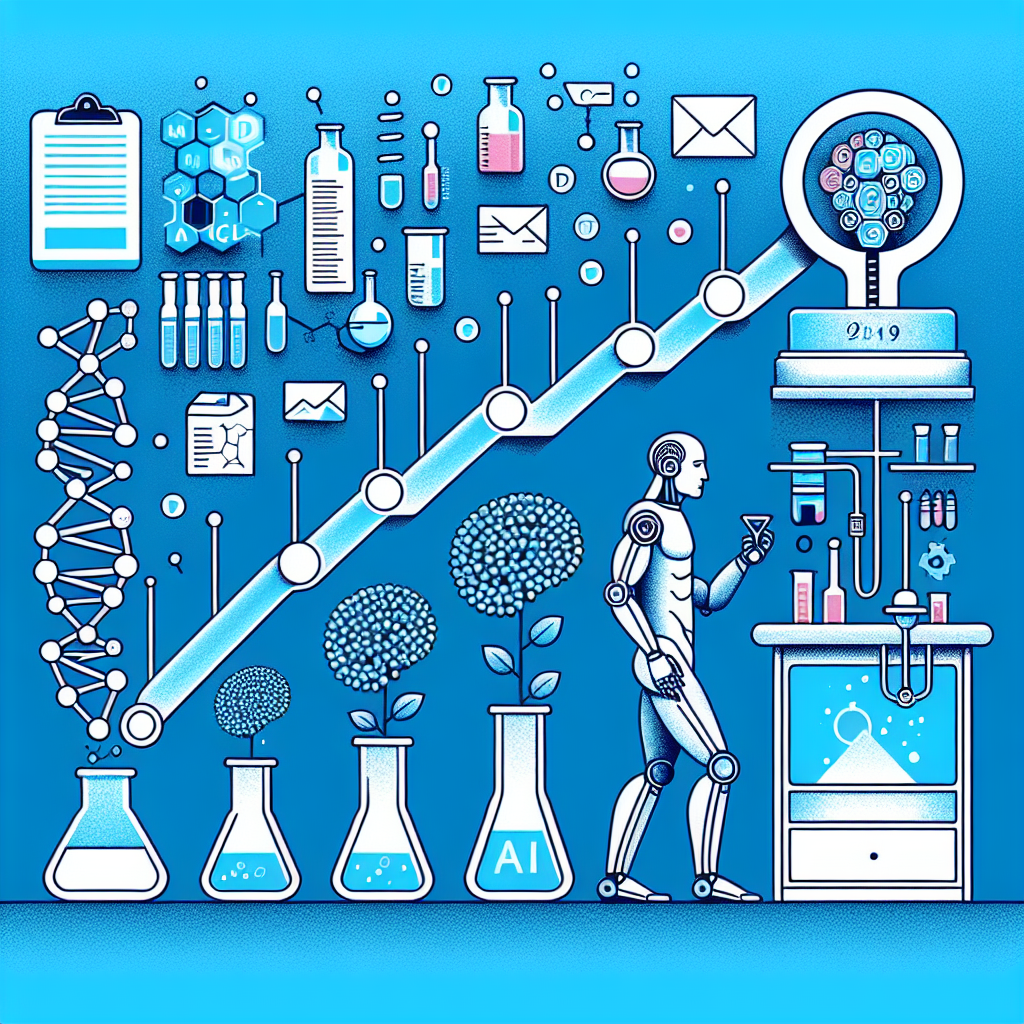Generative artificial intelligence (AI) has become a powerful tool in drug discovery, revolutionizing the way new drugs are developed. By using algorithms to generate novel drug candidates, generative AI has the potential to significantly accelerate the drug discovery process, reduce costs, and improve the success rate of bringing new drugs to market.
The evolution of generative AI in drug discovery can be traced back to the early 2000s when researchers began exploring the use of AI in the pharmaceutical industry. At that time, AI was primarily used for data analysis and prediction, but as computing power and AI algorithms advanced, researchers began to see the potential for using AI to design new drugs.
One of the key developments in the evolution of generative AI in drug discovery was the introduction of deep learning algorithms. Deep learning is a type of machine learning that uses neural networks to learn from large amounts of data and make predictions. In drug discovery, deep learning algorithms can be used to analyze vast amounts of chemical and biological data to identify potential drug candidates.
Another important development in the evolution of generative AI in drug discovery was the creation of generative models. Generative models are AI algorithms that can generate new data based on patterns in existing data. In drug discovery, generative models can be used to generate novel drug candidates by combining information from existing drugs and biological data.
Today, generative AI is being used by pharmaceutical companies and research institutions around the world to design new drugs for a wide range of diseases. By using AI to generate new drug candidates, researchers can explore a much larger chemical space than would be possible using traditional methods, leading to the discovery of novel drugs with unique mechanisms of action.
One of the key advantages of generative AI in drug discovery is its ability to speed up the drug development process. Traditional drug discovery methods can take years or even decades to identify and develop a new drug, but with generative AI, researchers can rapidly generate and test new drug candidates in a fraction of the time. This can significantly reduce the cost of drug development and increase the likelihood of success in bringing new drugs to market.
In addition to speeding up the drug discovery process, generative AI also has the potential to improve the quality of drug candidates. By generating novel drug candidates based on patterns in existing data, AI algorithms can identify drugs with unique mechanisms of action that may not have been discovered using traditional methods. This can lead to the development of more effective and safer drugs for a wide range of diseases.
Despite the many advantages of generative AI in drug discovery, there are also challenges and limitations to be aware of. One of the key challenges is the need for large amounts of high-quality data to train AI algorithms. Without sufficient data, AI algorithms may not be able to accurately generate new drug candidates. Additionally, there are concerns about the ethical implications of using AI in drug discovery, including issues related to data privacy and bias in AI algorithms.
In conclusion, the evolution of generative AI in drug discovery has the potential to transform the pharmaceutical industry by accelerating the development of new drugs and improving the quality of drug candidates. By using AI algorithms to generate novel drug candidates, researchers can explore a much larger chemical space and discover drugs with unique mechanisms of action. While there are challenges and limitations to be aware of, the future of generative AI in drug discovery looks promising and is likely to continue to revolutionize the way new drugs are developed.
FAQs:
Q: How does generative AI work in drug discovery?
A: Generative AI algorithms analyze large amounts of chemical and biological data to identify patterns and generate novel drug candidates. By combining information from existing drugs and biological data, AI algorithms can generate new drugs with unique mechanisms of action.
Q: What are the advantages of using generative AI in drug discovery?
A: Generative AI can accelerate the drug discovery process, reduce costs, and improve the quality of drug candidates. By exploring a larger chemical space and identifying novel drug candidates, AI algorithms can lead to the development of more effective and safer drugs for a wide range of diseases.
Q: What are the challenges of using generative AI in drug discovery?
A: One of the key challenges is the need for large amounts of high-quality data to train AI algorithms. Without sufficient data, AI algorithms may not be able to accurately generate new drug candidates. Additionally, there are concerns about the ethical implications of using AI in drug discovery, including issues related to data privacy and bias in AI algorithms.

